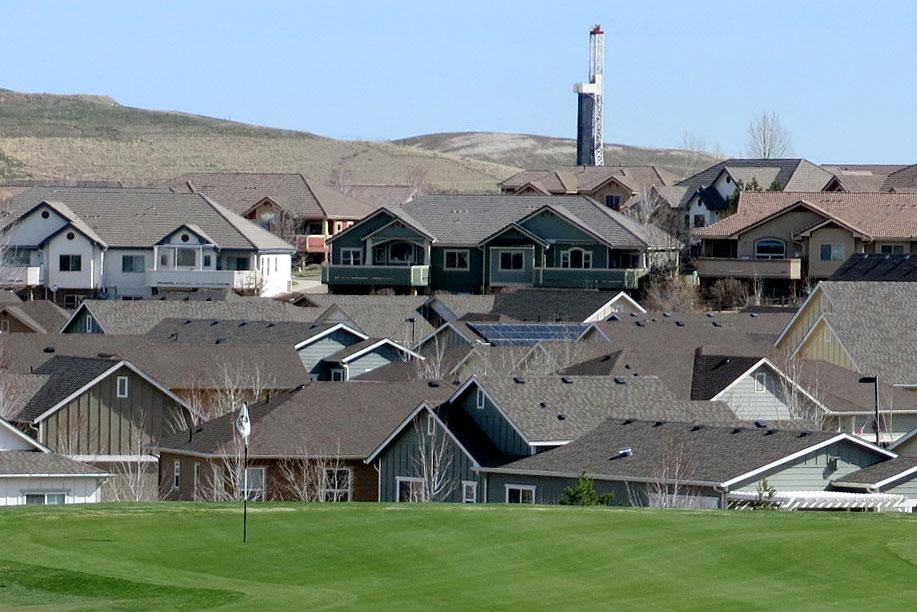

More than a dozen new energy and environment bills are headed to Gov. Jared Polis for a signature. They cover an array of issues from the oversight of electrical generating companies to how companies have to factor climate change into their decision making to the nitty gritty of how oil and gas drilling is governed in the state.
“Given the priority we saw voters make of energy and the environment this past fall they were a really an important part of this past legislative session,” said Kelly Nordini, executive director of Conservation Colorado, an environmental nonprofit.
While momentous, the actual impacts of some policies are yet to be determined. At least two — the oil rule and greenhouse gas reduction goals — will see many details decided in rulemaking by state agencies.
Agencies will release basic ideas on their plans for new regulations. Then they’ll release a draft rule for the public to weigh in on. Some environmental groups plan to put pressure on the state to hold evening sessions, so the public has a better chance to share their concerns.
The oil and gas law, for example, will require at least a half-dozen rules to be written or rewritten. That means it could take years -- not months -- to completely spell out details of measures that could have the biggest impact on curbing climate change.
“So the outcome of this session we won’t know fully for multiple years to come,” said Scott Prestidge, communications director for the Colorado Oil and Gas Association.
Here’s a list of the key energy and environment bills:
Just Transition From Coal-based Electrical Energy Economy. Creates first-of-its-kind Just Transition office, and makes grants available to coal transition workers.
Electric Motor Vehicles Public Utility Services. Allows electric utilities to apply to the Public Utilities Commission to build electric vehicle charging stations.
Protect Public Welfare Oil and Gas Operations. 29-page bill makes health and safety a priority for regulators and launches more than a half dozen rulemakings on things like flowlines, adopting additional methane controls.
Collect Long-Term Climate Change Data. Directs state health officials to collect greenhouse gas emission data annually, and make data available to local governments.
Community Solar Gardens Modernization Act. Allows community solar gardens to expand from 2 to 5 megawatts.
Modify Innovative Motor Vehicle Income Tax Credits. Current law phases out EV tax credits at the end of 2021, new law extends tax credits through 2025.
Electric Vehicle Grant Fund. Allows for more flexibility in how EV Grant Fund administered by the Colorado Energy Office is used.
New Appliance Energy and Water Efficiency Standards. Appliances and plumbing fixtures sold in Colorado will have to meet new energy efficiency and water efficiency standards.
Building Energy Codes. Local governments required to adopt one of three international energy conservation codes when they update building codes.
Climate Action Plan To Reduce Pollution. Directs Colorado’s Air Quality Control Commission to reduce greenhouse gas emissions 26 percent by 2025, 50 percent by 2030 and 90 percent by 2050.
Housing Authority Properties. Allows public housing authorities to participate in state PACE program, a way to finance clean energy projects.
Front Range Waste Diversion Program. Creates Front Range landfill fee that goes to help communities meet waste diversion goals.
Sunset Public Utilities Commission. 81-page bill gives new charter for state electric utility regulators, including a move in 2020 to calculate the social cost of carbon dioxide emissions in certain utility proceedings.









